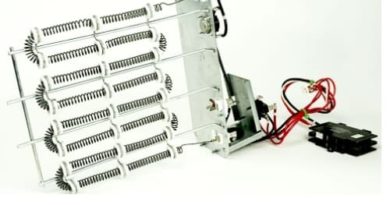House Humidity and Why It Matters
When it comes to heating and cooling your home, humidity is an important factor that can greatly impact your comfort level and energy costs. Humidity refers to the amount of moisture in the air, and it can affect both temperature perception and air quality. In this article, we will discuss why humidity matters when heating and cooling your house, and what steps you can take to maintain optimal humidity levels.
The Basics of Humidity
Humidity is the amount of water vapor present in the air. It is often measured in terms of relative humidity, which is the amount of moisture in the air compared to the maximum amount it can hold at a given temperature. For example, if the relative humidity is 50%, it means the air contains 50% of the maximum amount of moisture it can hold at that temperature.
In addition to temperature, humidity can also be affected by factors such as air circulation, the presence of moisture sources (such as plants or humidifiers), and outdoor weather conditions. When the air is too humid, it can feel sticky and uncomfortable, and it can also lead to mold growth and other moisture-related issues. On the other hand, when the air is too dry, it can cause dry skin, throat irritation, and other health problems.
The Impact of Humidity on Heating and Cooling
When it comes to heating and cooling your home, humidity can have a significant impact on your comfort level and energy costs. Here are some ways humidity affects heating and cooling:
- Temperature Perception: Humidity can affect how we perceive temperature. When the air is humid, it can feel warmer than it actually is, while dry air can make temperatures feel cooler. This means that if the air in your home is too humid, you may feel hotter than the actual temperature, which can lead to overuse of your air conditioning system. Conversely, if the air is too dry, you may feel cooler than the actual temperature, which can lead to overuse of your heating system.
- Energy Costs: Humidity can also affect your energy costs. When the air is too humid, your air conditioning system has to work harder to remove the excess moisture from the air. This can lead to higher energy bills and more wear and tear on your system. Similarly, when the air is too dry, your heating system has to work harder to maintain a comfortable temperature, which can also lead to higher energy bills.
- Air Quality: Humidity can also affect the quality of the air in your home. When the air is too humid, it can create the perfect conditions for mold and other allergens to grow. This can lead to health problems and a decrease in indoor air quality. On the other hand, when the air is too dry, it can cause dry skin, throat irritation, and other health problems.
Maintaining Optimal Humidity Levels
To maintain optimal humidity levels in your home, there are a few steps you can take:
- Use a Humidifier or Dehumidifier: Depending on the current humidity level in your home, you may need to use a humidifier or dehumidifier to bring the humidity to a comfortable level. A humidifier adds moisture to the air, while a dehumidifier removes excess moisture.
- Seal Leaks: Air leaks can allow excess moisture into your home, which can raise the humidity levels. To prevent this, seal any air leaks in your home, including around windows and doors.
- Ventilate Your Home: Proper ventilation can help regulate humidity levels by allowing moisture to escape. Make sure your home has adequate ventilation in areas such as the kitchen and bathroom.
- Maintain Your HVAC System: Proper maintenance of your heating and cooling system can help regulate humidity levels. Make sure to change your air filters regularly and have your system inspected and serviced by a professional



